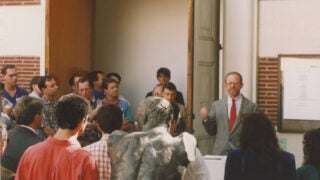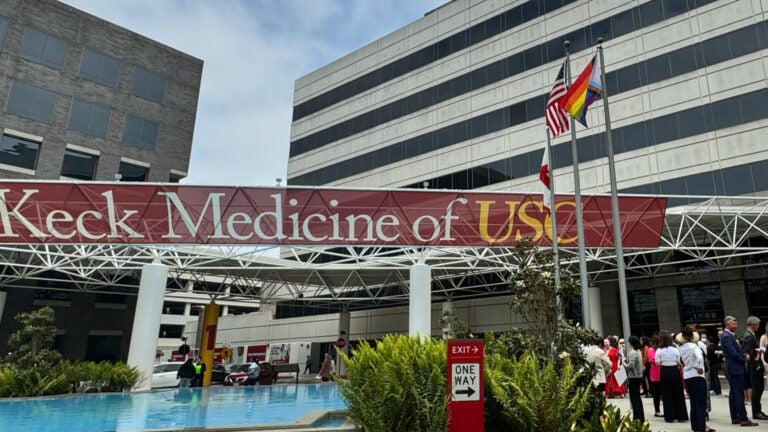
The pride progress flag is raised on the USC Health Sciences Campus to celebrate LGBTQ+ Pride Month. (Photo/Victoria Mendoza)
Trojans kick off LGBTQ+ Pride Month at USC with community solidarity
Growth of gender-affirming care program, student center and ONE Archives celebrated during virtual program.
Trojan students, faculty and staff kicked off LGBTQ+ Pride Month on Monday with a powerful virtual program that included remarks by USC President Carol Folt followed by a pride progress flag raising ceremony on the USC Health Sciences Campus.
“At USC, we’ve been celebrating your power all year long,” said Folt, who pointed to the reopening of a renovated ONE Archives at the USC Libraries — the largest repository of LGBTQ+ materials in the world — and the doubling of space for USC’s LGBTQ+ Student Center.
The student center, which hosts weekly affinity groups for a variety of communities within the LGBTQ+ umbrella, will celebrate its 20th anniversary next year. Folt said such a space “is more important than ever” because in 2024 alone, the American Civil Liberties Union reports that they are tracking 515 anti-LGBTQ+ bills in the United States.
“It was very important to me that this space was beautifully welcoming and that it was larger,” Folt said. “It has always been the home away from home for so many of our LGBTQ students. We want to offer at USC a wonderful sense of connection and community to combat the damage of those misguided bills.”
A hub for community
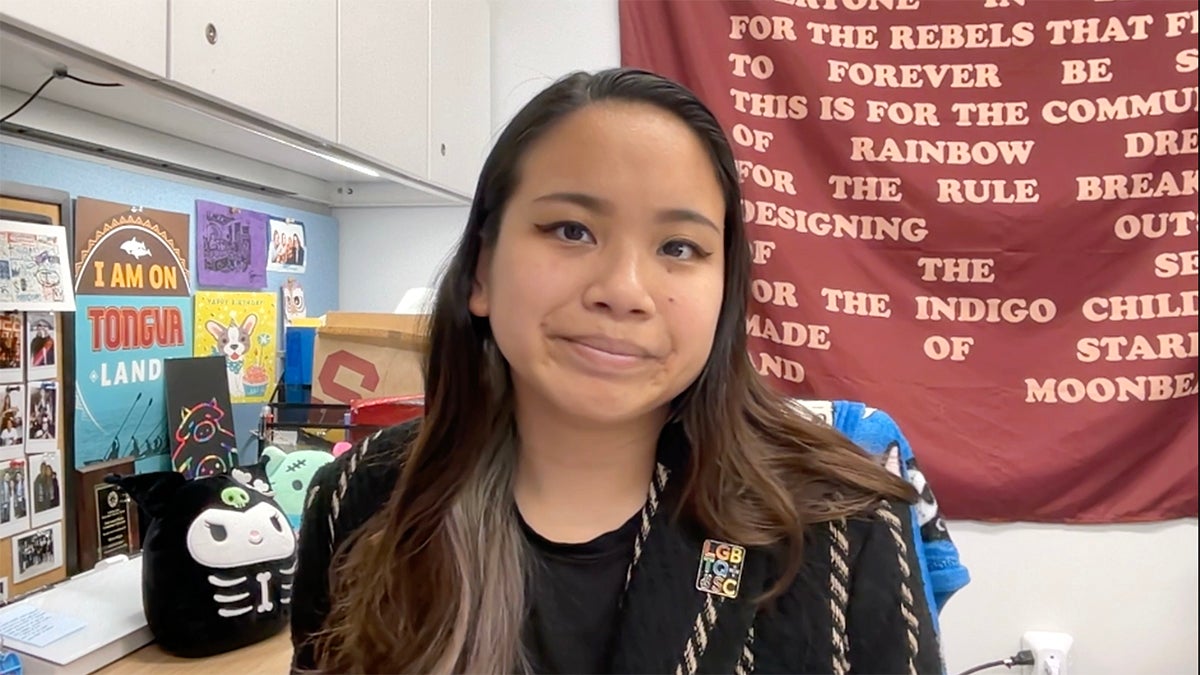
The center’s supervisor, Alyssa Alegre, described the space “as chaotic and funny, but also as safe and comfortable as it can be.”
“You’ll always find us consuming the next big piece of queer media and pop culture,” said Alegre, who uses they/them pronouns. “But you also find folks sharing invaluable resources and perspectives that illuminate possibility and promise to live a more affirming life.”
Alegre reminded the virtual audience that queer and trans stories, hardships and triumphs have always existed at USC. They recognized the “profound impact” of this Trojan LGBTQ+ presence and how it has shaped a more inclusive and affirming campus environment over the years.
“We as queer and trans people have always built together, whether it’s our resistance to hate, the joy of our shared experiences or the systems to make sure we continue to live and thrive,” they said.
Alegre urged LGBTQ+ Trojans to continue to help each other, to advocate together for a better future, and to stand firm and live powerfully in their pride.
“While others may be praying for our downfall, we continue to rise again and again,” they said. “We’ve always been here and will continue to be here.”
Gender-affirming care celebrated at USC
Folt also celebrated the 11th year of the USC Gender-Affirming Care Program, where specialists provide a full range of gender-affirming primary care and transition-related health care services in a safe and supportive environment for transgender, nonbinary and gender-diverse patients.
Laura Taylor, the medical director of the program, said it has grown significantly in the last four years to serve hundreds of patients as USC has brought in physicians and providers from diverse backgrounds.
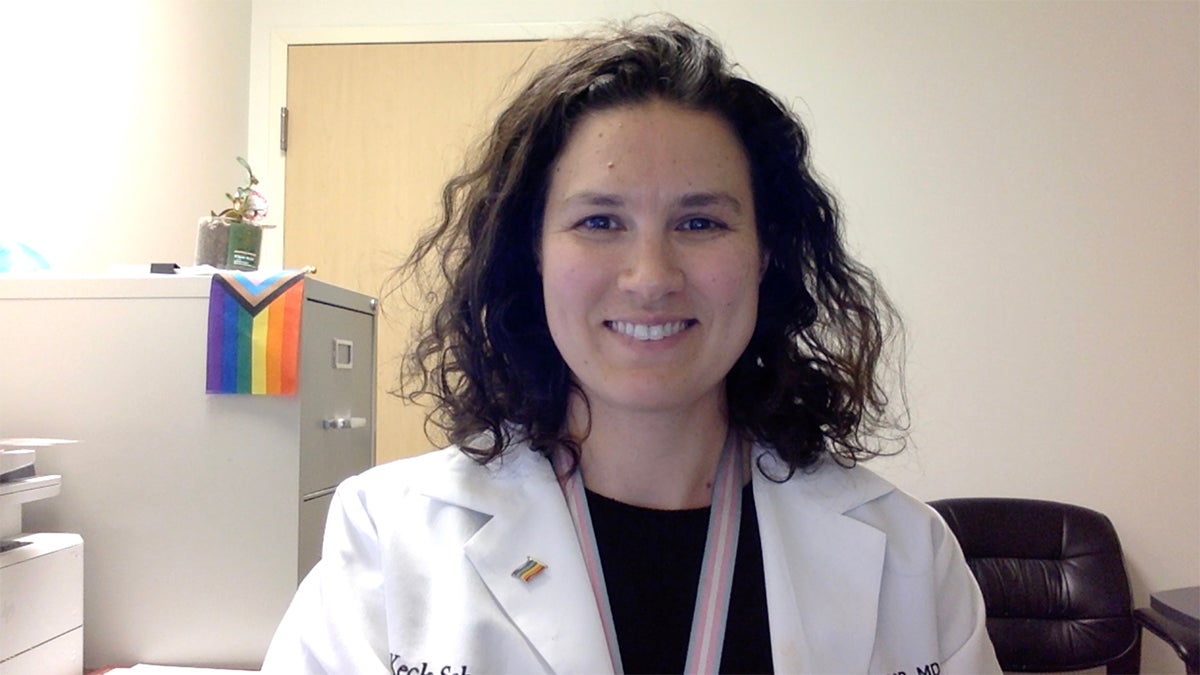
“I think this care is even more important as we see an increasing number of legislative attacks on best practice medical care from states across the U.S. and from around the world,” Taylor said as part of the virtual program. This has “created an environment where our patients and communities experience exclusion, chronic stress and fear about the future.”
Taylor, a physician and associate professor of family medicine at Keck Medicine of USC who identifies as queer, said we all benefit when we can see and value the diversity of perspectives and experiences around us.
Matthew Hernandez, who works as a patient navigator for the program, shared with the virtual audience that his transgender identity makes the work especially rewarding and meaningful.
“I not only sympathize and empathize with them — I have been through the system,” Hernandez said. “I am just so proud to be part of this life-saving movement.”
Celebrating queer joy and empowerment
Karrie Kingsley, USC’s associate chief inclusion and diversity officer for faculty and staff, also took part in the virtual program and spoke of the things that bring them “queer joy.”
“Growing up and being of a certain age as a queer, nonbinary person, I didn’t see representation — I didn’t see people out in the community,” Kingsley said. “I didn’t see LGBT folks on my television screen or in movies. I didn’t read about them in books. And so for me, it brings me such a sense of joy to see folks just doing things like everyone else.”
Ashley Mascarenhas, co-president of Marshall Pride at the USC Marshall School of Business, said she wants to cultivate the understanding that LGBTQ+ people “belong here and that we hold value in this world.”
“When I think about our queer and trans communities, the one thing that resonates with me is empowerment,” Mascarenhas said. “The empowerment to continue showing up, taking up space, being unapologetically ourselves and living our truth.”
Mascarenhas said these qualities are a “guiding light” for her leadership within Marshall Pride and its mission of leaving USC better for future generations. She also paid tribute to such LGBTQ+ heroes and trailblazers as the late Harvey Milk, Marsha P. Johnson and the activists who fought for queer and trans rights at the Stonewall uprising.
“I think of their tenacity, their perseverance and their strength,” Mascarenhas said. “It motivates me to be a better human being and leader.”
LGBTQ+ Pride Month takes place each June in honor of the 1969 Stonewall uprising in Manhattan, a tipping point for the gay liberation movement in the United States.
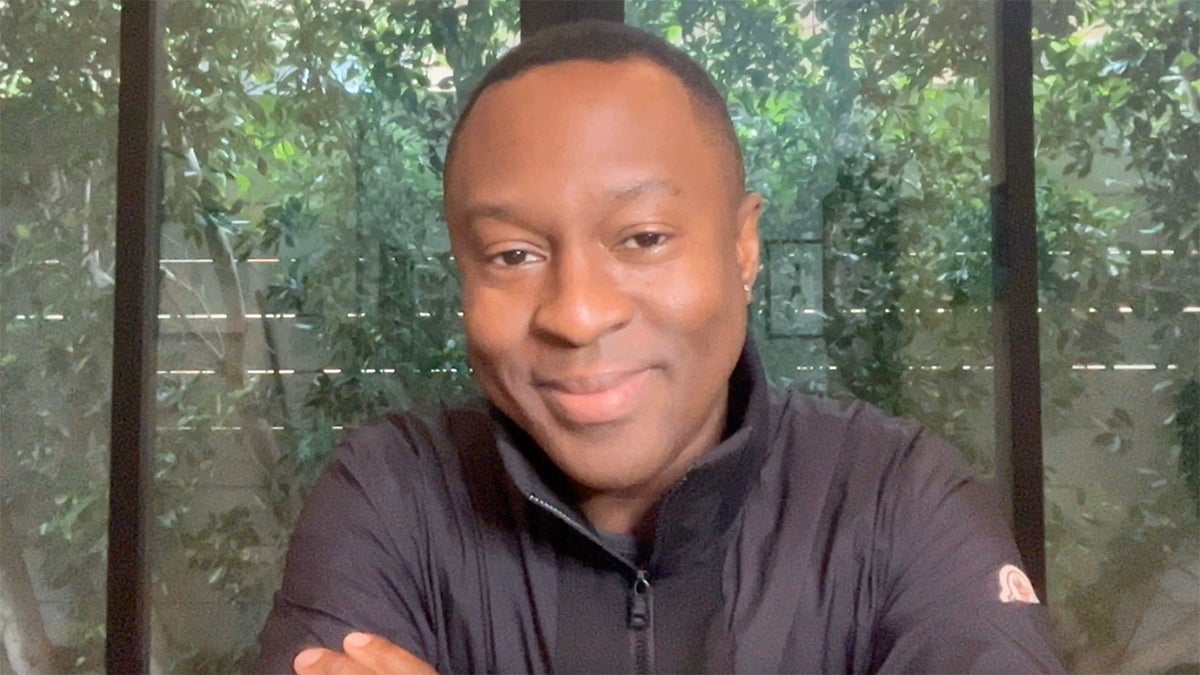
USC Thornton School of Music Dean Jason King said that since the fight for LGBTQ+ human rights continues, especially for queer and trans communities, Pride Month is an ideal time to learn about the history of the Pride March and the politics of resistance following the Stonewall uprising.
“Celebrating Pride also means acknowledging the vital role of activism, organizing and dissent in holding institutions accountable,” King said, “and making the world a more humane and inclusive place.”


